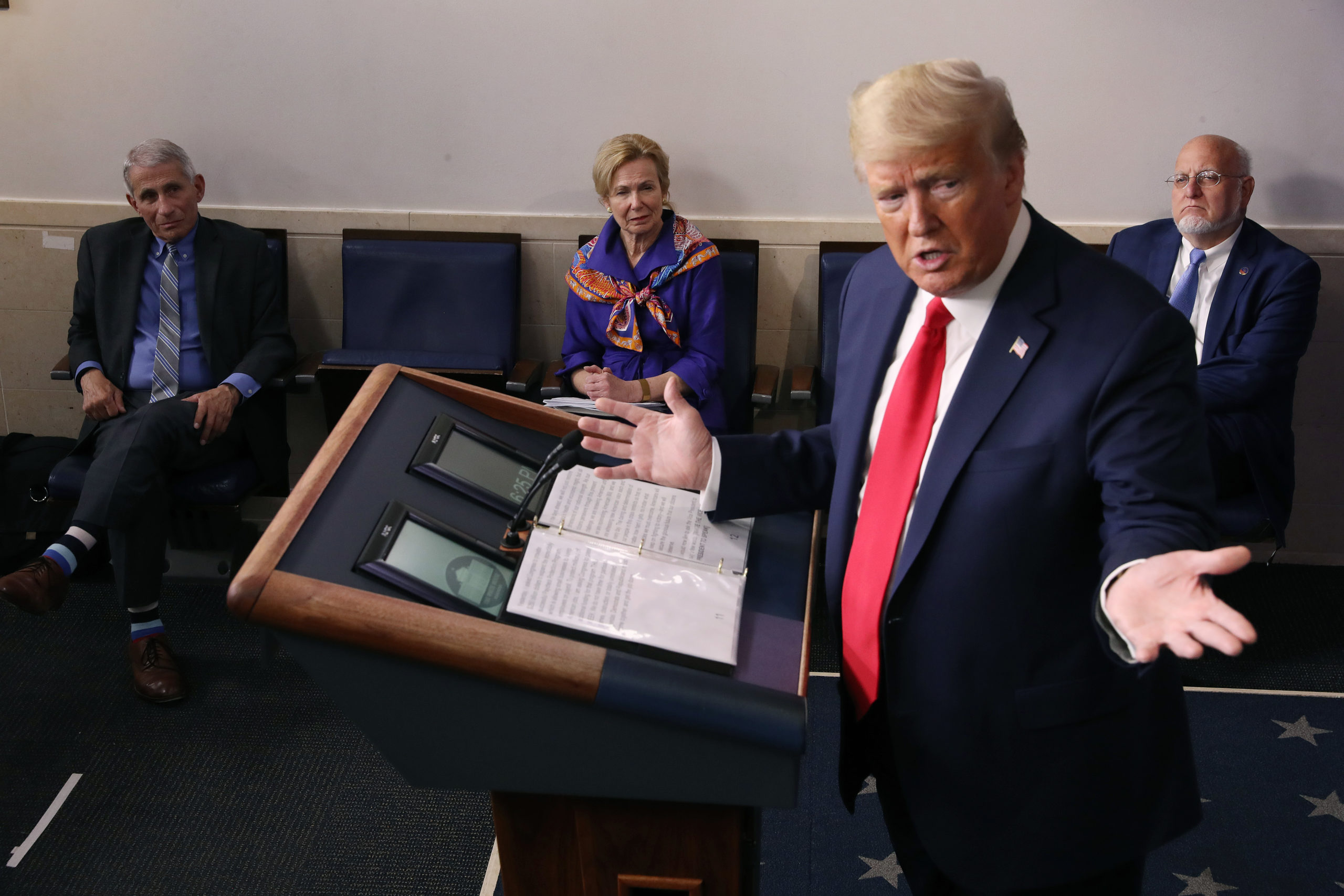“What do you have to lose? Take it.” Or, perhaps Donald, take it back. Your people have much to lose. And here’s why.
Hydroxychloroquine is a proven anti-arthritic, anti-lupus and antimalarial drug. Recently, it has been touted as a “game changer” in the treatment of COVID-19 by the likes of Donald Trump. The president caught journalists off guard last Monday when he explicitly stated that he has been taking the drug for a week and a half despite displaying “zero symptoms”. Is there substantial evidence for his grandiose claims, and what effect have they had on the public?
Origins of the theory
In February 2020, a French doctor named Didier Raoult released his team’s study on hydroxychloroquine and COVID-19. There were huge problems with the method: the sample size was just 20 patients, not sufficient to generalise to the entire population; all patients were French so lacked in geographical diversity; and the scientists knew which patients were taking the drug rather than the placebo so could have treated their participants differently, consciously or not. Raoult still went on to claim that this study was evidence for a significant association between hydroxychloroquine treatment and reduction – even disappearance – of the virus.

Suddenly, a small-scale study based on 20 people was the at the top of Twitter trending pages, with celebrities like Elon Musk putting in their two cents and picking up thousands of retweets. Those desperate for a cure were suddenly instilled with hope in a drug which may not bring the miracle they’ve been led to believe it will.
Evidence collected after Raoult’s study has suggested that hydroxychloroquine isn’t an effective treatment for COVID-19, including a study on 368 hospitalised COVID-19 patients – a much larger sample size. This isn’t to say that hydroxychloroquine has no use in the fight against COVID-19, just that its effects are yet unconfirmed.
So, what’s the problem? Even if hydroxychloroquine isn’t effective, is it really that much of a problem if it’s a proven drug against other diseases?
To put it bluntly, yes.
Risks of poorly communicating the science on hydroxychloroquine
During coronavirus press briefings and tweets, Donald Trump touted the safety and usefulness of hydroxychloroquine as a treatment.

“There are signs that it works on [coronavirus], some very strong signs”
“The FDA feels good about it…they’ve approved it.”
“It’s a very strong, powerful medicine, but it doesn’t kill people.”
Malaria, lupus and arthritis patients haven’t suddenly ceased needing hydroxychloroquine just because a global pandemic has broken out. Demand for the drug has skyrocketed, risking shortages for those who are reliant on it.
Hydroxychloroquine can also potentially harm our health. The European Medicines Agency has issued a reminder that the drug can worsen the condition of people with heart rhythm issues. Overdosing can cause life-threatening heart rhythm changes and convulsions, which are difficult to treat.
Finally, what the US president says does matter. His words carry immense power.
One couple from Arizona watched one of the daily press briefings where Trump advocated for hydroxychloroquine use and decided to take action.
“His press conference. It was on a lot, actually. Trump kept saying it was basically pretty much a cure… We were afraid of getting sick,” the woman told NBC.
The couple had chloroquine in their home as they had used it as a parasite treatment for their koi fish in the past, so mixed it with liquid and drank it. Within hours, the husband had died and the wife was being treated in critical care.
And this was BEFORE Trump’s announcement that he himself is taking the drug, despite displaying zero symptoms. Surely, other distressing stories are yet to come in the wake of such a public endorsement.
What can we learn from the US’ communication on hydroxychloroquine?
Understandably, the rush to find a treatment for COVID-19 has become an international priority. As such, funds are being poured into research. Scientists must be careful that this acceleration does not lead to false conclusions being drawn from their data and claims causing more harm than good.
However, more and more evidence has begun to accumulate on the ineffectiveness of hydroxychloroquine against COVID-19. This is not a question of ‘following the science’ when the majority of ‘the science’ is pointing one way and politicians, with prime access to top scientists and research, persist in moving in the other. The Trump administration ignoring the cries of concern suggests this is a problem of power rather than science. Evidence is rejected purely because it doesn’t fit a political agenda.
This isn’t just a US-American problem, either – many feel that the reason the UK enacted a lockdown so late (23th March) was politically motivated. The government received an open letter on 14th March from 229 scientists from UK universities – although none were leading experts in the science of spread of diseases – criticising the government’s plan to deal with the virus. This was followed by a letter on 16th March by nearly 700 behavioural scientists expressing their concerns. Clearly, scientists’ calls fell on deaf ears until the spread of the virus became irrefutable.
So, how can we address this problem? Unfortunately, there is no one solution. The best we can do as individuals right now is to be more critical of the information we receive, regardless of the source.
So, Donald, just because you have “nothing to lose”, that doesn’t mean your people – those with lupus, those racked with worry about their loved ones’ health, those looking to public figures for reassurance in the midst of a pandemic – have “nothing to lose” too. Whilst we are all aware of the virus spreading across the globe, it’s time the virulent spread of misinformation comes to public attention.
Update (25/05/2020): Donald Trump announced that he is no longer taking Hydroxychloroquine.
image source (main): Chip Somodevilla/Getty Images

